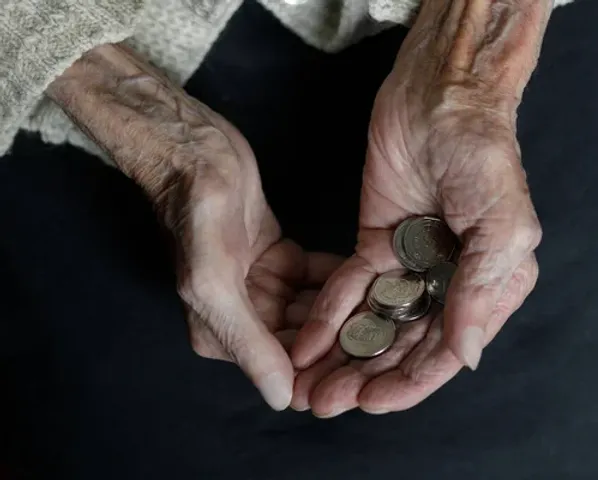’20 percent of those over the age of 85 live in poverty’
As of 2021, the number of pensioners living below the poverty line rose to above 2 million, despite the retirement age being increased to 66. According to Age UK, that number has only risen, with 18 percent of pensioners’ incomes being less than 60 percent of the national income. Half of this group can be considered to live in ‘severe poverty’ and 9 percent are in a group considered ‘just over the poverty line.’
These rising statistics contradict the government’s outline for each generation to enjoy the same proportion of life contributing to and receiving state pensions. As pensions fail to cover a proper living wage they suggest that state pensions are no longer a sustainable solution for maintaining a comfortable standard of living.
Further indicative of this is the alarming degree to which pensioner poverty reflects inequality at large: Age U.K reported that 29 percent of Asian pensioners and 25 percent of black pensioners live in poverty compared to 17 percent of white pensioners while 19 percent of pensioners that are women live in poverty compared to 16 percent of men, mimicking wage inequality and class issues that exist generally. The report also finds that 20 percent of those over the age of 85 live in poverty compared to 15 percent of 65-69 year olds, suggesting that many pensioners’ savings are not stretching to cover an acceptable living in the latter half of their retirement, nor are pensions supplementing these savings appropriately.
These statistics make light of the unfortunate reality that, despite the fact that our population are working for a longer period over their lives, the added years of work do not translate to more money or a better standard of living.
Furthermore, the Centre for Better Aging finds that over a third of people are still in work by the age of 65, mostly due to poor health and hiring practices favouring younger people. Not only are pensions and savings becoming an inadequate fund for retirement, many face unemployment before they are entitled to a pension, further eating into savings. The retirement age has gone up and is set to increase further, to accommodate for longer lifespans, however, this data goes to show that people living longer does not mean that people can work for the same proportion of their lives.
Other contributing factors toward pensioner poverty include bereavement, disability, and increased energy bills due to living in poorly insulated house, all of which are associated with old age. Age U.K. also encourages greater publicity around the benefits available to pensioners to help alleviate the costs that disability incurs.
Age U.K concludes their report calling for pensions to amount to an adequate income, rather than compensating with one-off payments and greater publicity around the benefits pensioners can receive. However, there are greater structural inequalities at play here, such as race as gender, as well as the fact that the rising cost of living means the average paycheque cannot stretch as far as it used to. If the government continues to rise the retirement age as planned, we can surely expect to see this problem worsen as people struggle to remain employed during their later years.





















